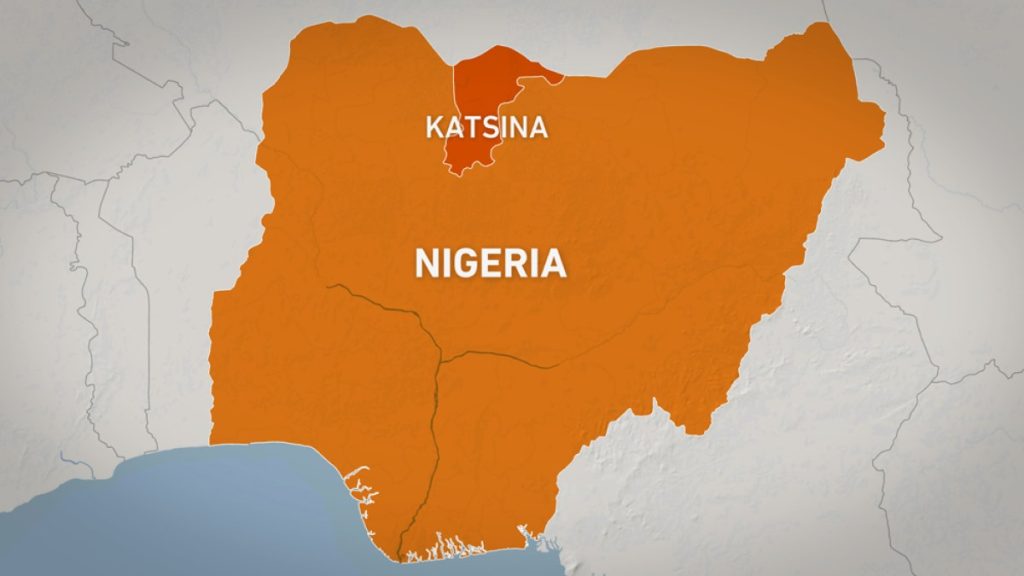The northwestern Nigerian state of Katsina has once again become the scene of a tragic ambush, claiming the lives of at least 21 government-backed fighters. The attack, which occurred in the village of Baure within the Safana district, targeted a convoy of pro-government forces returning from a funeral service for a fallen comrade. According to police spokesman Abubakar Sadiq Aliyu, the convoy was ambushed by bandits, resulting in the devastating loss of life. While the official police report cites 21 fatalities, eyewitness accounts suggest a potentially higher death toll, with as many as 25 lives lost and numerous villagers still unaccounted for. The attack underscores the ongoing security challenges plaguing the region and the vulnerability of even those tasked with protecting communities.
The victims of the ambush were members of the Katsina Community Watch Corps (KCWC), a state-backed security force established in 2023 by Governor Dikko Umar Radda to bolster the efforts of the military and police in combating the pervasive banditry that has gripped the region. Comprising approximately 2,000 personnel, the KCWC was intended to provide additional manpower and local expertise in the fight against armed groups that have terrorized communities for years. This latest attack, however, highlights the inherent risks faced by these local security forces, who often operate in remote and vulnerable areas with limited resources and support. Their tragic loss further emphasizes the urgency of addressing the root causes of insecurity in the region and providing adequate protection for those on the front lines of this conflict.
The ambush in Baure is not an isolated incident. Katsina, along with several other states in northwestern and central Nigeria, has been grappling with the menace of banditry for years. These armed groups, operating from camps within a vast forest spanning across Zamfara, Katsina, Kaduna, and Niger states, have wreaked havoc on local communities. Their activities range from raiding villages and looting homes to carrying out kidnappings for ransom and perpetrating brutal killings. The June 2024 attack on a rural community in Katsina, which resulted in seven deaths and the abduction of 100 people, serves as a chilling reminder of the scale and severity of the banditry problem. The frequency and brutality of these attacks have instilled fear and insecurity in the region, disrupting lives and livelihoods and highlighting the urgent need for effective security interventions.
The bandits’ notoriety has grown in recent years due to their increasing involvement in mass kidnappings, particularly targeting schools and students. These abductions have not only caused immense trauma and suffering to the victims and their families but have also disrupted education and created a climate of fear that hinders development and progress in affected communities. The abduction of students has drawn international attention to the security crisis in Nigeria, prompting calls for greater government action to protect vulnerable populations and bring an end to the reign of terror imposed by these criminal gangs. The ongoing threat of abduction has further exacerbated the existing challenges in the education sector, particularly in rural areas, where access to education is already limited.
Adding to the complexity of the security situation in Katsina is the presence of Boko Haram, a notorious armed group known for its violent insurgency in northeastern Nigeria. Boko Haram has also carried out attacks and abductions in Katsina, further destabilizing the region and complicating efforts to address the multifaceted security challenges. The convergence of banditry and Boko Haram’s activities poses a significant threat to the stability and security of Katsina and surrounding states, demanding a comprehensive and coordinated security response. The presence of multiple armed groups with varying agendas requires a nuanced approach that addresses the specific drivers of conflict and insecurity in different areas.
The attack on the KCWC convoy underscores the complex and multifaceted security challenges confronting Katsina State and the broader northwest region of Nigeria. The ongoing banditry, compounded by the activities of Boko Haram, poses a significant threat to the safety and well-being of communities. The loss of the KCWC members highlights the vulnerability of local security forces and the urgent need for increased support and resources to combat these threats effectively. Addressing the root causes of insecurity, including poverty, unemployment, and lack of access to education, will be crucial in achieving long-term stability and peace in the region. Furthermore, strengthening security collaboration between state and federal authorities, as well as enhancing intelligence gathering and community engagement, are essential steps towards effectively countering the activities of armed groups and protecting vulnerable populations. The tragic events in Baure serve as a stark reminder of the human cost of insecurity and the need for concerted action to restore peace and stability in the region.

